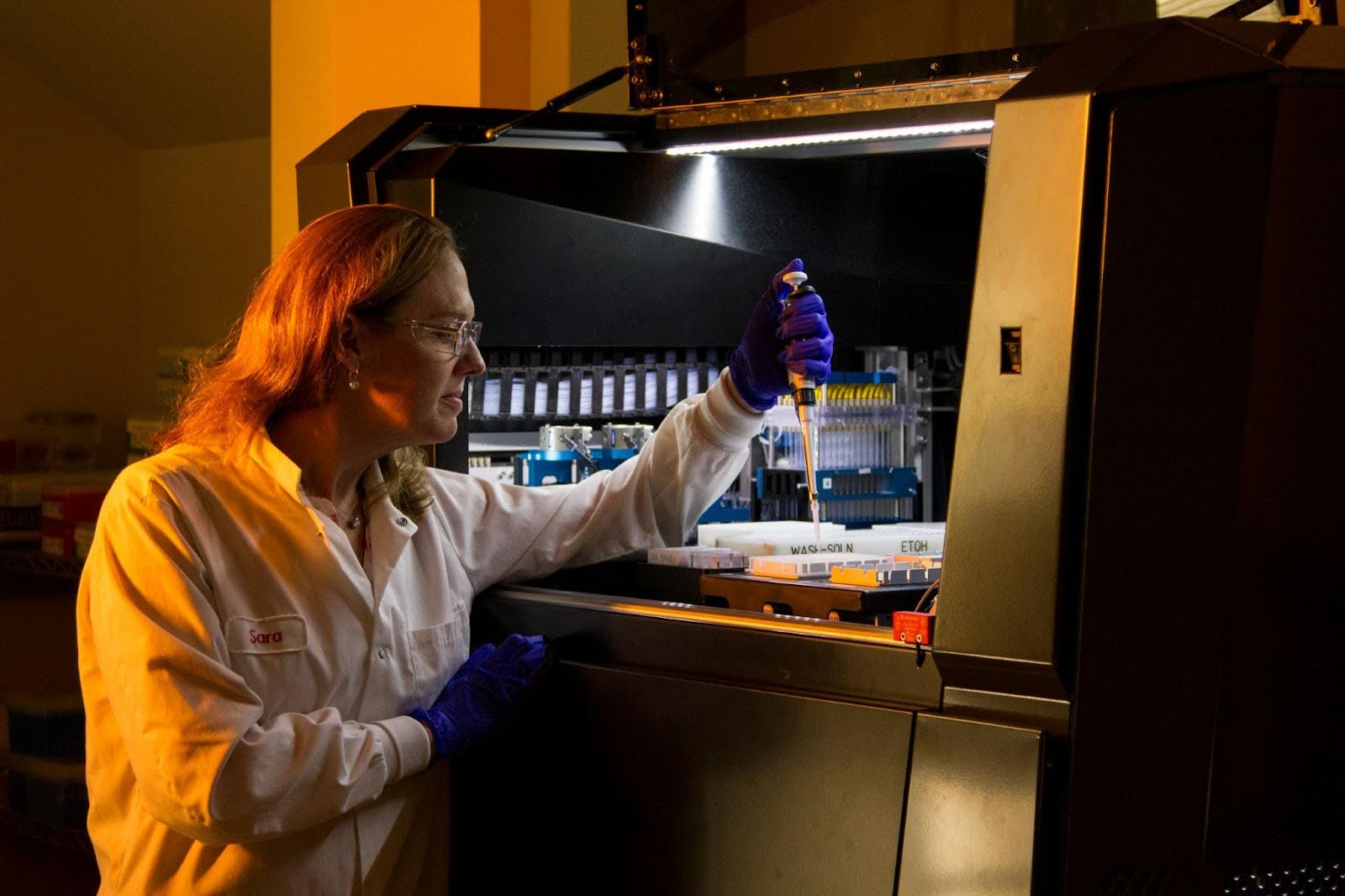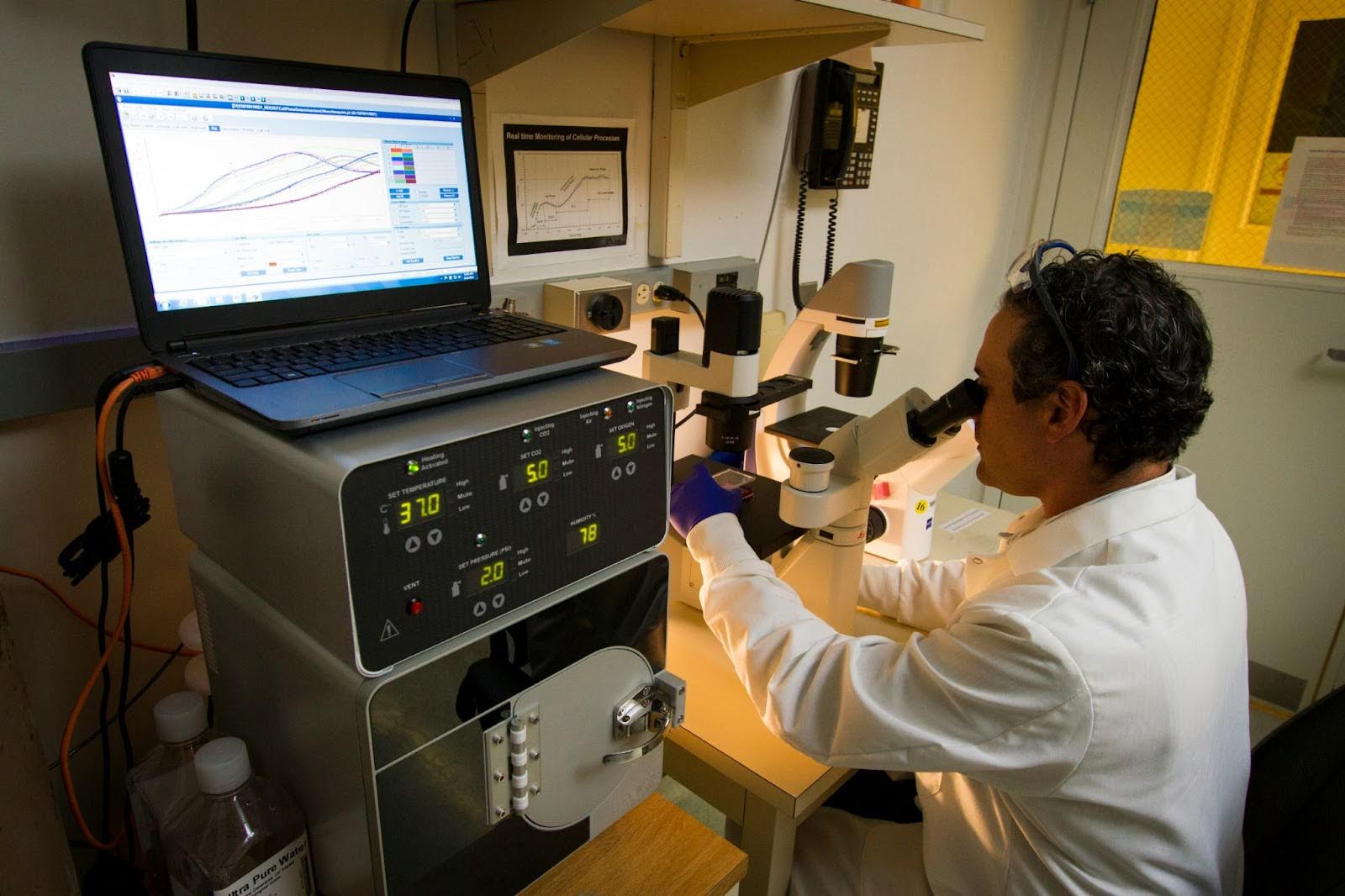Key Takeaways:
- Recognizing Early Symptoms: Early detection of colon cancer through recognizing symptoms like changes in bowel habits, blood in stool, and abdominal discomfort can significantly improve treatment outcomes.
- Knowing the Risk Factors: Understanding risk factors such as age, family history, and lifestyle choices is crucial for prevention and early intervention.
- Importance of Regular Screenings: Regular screenings, including colonoscopy and fecal occult blood tests, can detect colon cancer before symptoms appear, increasing the chances of successful treatment.
At Catch, our mission is to help you prevent and detect cancer early. Colon cancer, one of the most common cancers worldwide, can be particularly dangerous if not caught in its early stages. Survival rates are high in those who find their cancer during the localized stage (91%), but they drop significantly if colon cancer spreads to other parts of the body.
Understanding the early signs of colon cancer is vital for timely intervention and effective treatment. Let’s delve into the subtle symptoms that could indicate the onset of colon cancer, providing you with the knowledge you need to stay vigilant and proactive about your health.

Common Early Signs Of Colon Cancer
Colorectal–or colon–cancer is the 4th leading cause of cancer-related deaths in the United States. Since it is showing up in younger people than it used to, it’s important to know what to look out for. Many of the symptoms below can be attributed to other medical conditions, and there is no need to panic. Still, recognizing the early signs of colon cancer means that you can get tested and maintain peace of mind.
Changes In Bowel Habits
One key indicator that something might be amiss in your colon is a change in your bowel habits. This can manifest in several ways. For some, it might mean experiencing constipation where there was none before or perhaps a sudden shift to more frequent bowel movements. Others might notice that their stool consistency has changed, becoming either harder or looser than usual.
It's not just about the frequency or consistency, though. A feeling of incomplete evacuation, where you feel like you haven't fully emptied your bowels even after going to the bathroom, can be another subtle yet significant change. If you notice any persistent changes in your bowel habits, it's wise to seek medical advice promptly.
Abdominal Pain And Discomfort
Persistent abdominal pain and discomfort can be an early warning sign of colon cancer. This symptom might manifest as a dull ache or a sharp pain, often localized in the lower abdomen. The discomfort may be intermittent or constant, and it can sometimes be accompanied by bloating or a feeling of fullness.
Patients often describe the pain as cramping or a sensation of pressure. While a variety of conditions can cause abdominal pain, any ongoing pain, especially if paired with other symptoms, should prompt further investigation.
Unexplained Weight Loss
One of the more subtle yet critical signs of colon cancer can be unexplained weight loss. If you're dropping pounds without changing your diet or exercise routine, it's worth taking note. This symptom often flies under the radar, but it's your body's way of signaling that something might be off.
Weight fluctuations are common, but it's time to dig deeper when the scale starts tipping without any apparent reason. Unexplained weight loss can be linked to various health issues, including colon cancer. The body might be struggling to absorb nutrients properly, or the cancer itself could be causing metabolic changes.
Monitoring any sudden or significant weight loss and discussing it with your healthcare provider is crucial. They can help determine if it's related to colon cancer or another condition, ensuring you get the right care at the right time.
Rectal Bleeding And Blood In Stool
One of the most alarming and unmistakable early signs of colon cancer is the presence of blood in your stool or rectal bleeding. If you notice bright red blood, it might be coming from the lower part of your colon or rectum. On the other hand, darker blood could indicate bleeding higher up in the digestive tract.
Don’t dismiss these symptoms as mere hemorrhoids or minor issues. While those conditions can indeed cause bleeding, the possibility of colon cancer should not be overlooked. Any blood in your stool warrants a visit to your healthcare provider for a thorough examination. If you experience rectal bleeding or notice blood in your stool, don't hesitate to seek medical advice promptly.
Fatigue And Weakness
One of the lesser-known but significant early signs of colon cancer is persistent fatigue and weakness. Unlike the typical tiredness that can be alleviated with rest, this type of fatigue lingers and can severely impact daily activities. Patients often report feeling unusually weak, as if their energy reserves are constantly depleted.
This symptom may be due to the body's ongoing fight against the cancer, which can lead to anemia or other metabolic changes. If you find yourself struggling with unexplained fatigue that doesn't improve with rest, consult a healthcare provider to rule out serious conditions like colon cancer.
Understanding Colon Cancer
Colon cancer, also known as colorectal cancer, originates in the colon or rectum, which are parts of the large intestine. It's one of the most common cancers worldwide, but the good news is that when detected early, it's highly treatable.
This type of cancer usually begins as small, non-cancerous (benign) clumps of cells called polyps that form on the inside of the colon. Over time, some of these polyps can become colon cancers.
Polyps may be small and produce few, if any, symptoms. For this reason, doctors recommend regular screening tests to help prevent colon cancer by identifying and removing polyps before they turn cancerous.

Risk Factors For Colon Cancer
There are risk factors that can increase your chances of developing colon cancer, which might be helpful to keep in mind if you want to be vigilant about the disease. Here are some key elements that can raise your likelihood.
- Age: The risk of developing colon cancer increases significantly after the age of 50. Regular screenings are now recommended starting at age 45 to catch any potential issues early.
- Family History: If you have a close relative who has had colon cancer or polyps, your risk is higher. Genetic factors can play a significant role, and it's important to discuss your family history with your healthcare provider.
- Personal History: A previous diagnosis of colon cancer or certain types of polyps increases your risk of developing the disease again. Keeping up with follow-up care and screenings is essential.
- Lifestyle Factors: Diets high in red and processed meats, low in fiber, and a sedentary lifestyle can contribute to an increased risk. Additionally, obesity, smoking, and heavy alcohol use are known to elevate the chances of developing colon cancer.
- Inflammatory Bowel Disease: Conditions like Crohn's disease or ulcerative colitis can increase the risk due to chronic inflammation of the colon.
- Type 2 Diabetes: There is a noted association between type 2 diabetes and an increased risk of colon cancer, though the reasons are not fully understood.
Understanding these risk factors can help you take proactive steps towards prevention and early detection, which are key in managing the potential threat of colon cancer.
Protect Your Health With Catch
At Catch, we're dedicated to helping you prevent and detect cancer early. If you're concerned about the early signs of colon cancer, don't wait—take action today. Here's how you can start:
- Learn More: Educate yourself about the symptoms and risk factors associated with colon cancer. Knowledge is power, and understanding your body can help you catch issues early.
- Schedule a Screening: Early detection is crucial. Talk to your healthcare provider about getting screened, especially if you're at higher risk due to family history or other factors.
- Stay Vigilant: Keep an eye out for any changes in your body. If you notice symptoms like persistent abdominal discomfort, changes in bowel habits, or unexplained weight loss, seek medical advice promptly.
Catch offers a range of tools and information to help you stay proactive about your health. Visit our website to access free guides, webinars, and support networks designed to empower you in your fight against cancer. Trust Catch to be your partner in health, and take the first step towards a cancer-free future today.

Final Thoughts
Early detection of colon cancer can significantly increase the chances of successful treatment and survival. When caught in its earliest stages, the disease is more likely to be confined to the colon, making it easier to treat and manage. Regular screenings and being aware of the early signs can make a world of difference.
At Catch, we believe in the power of cancer prevention and early detection. By working together, we can make a real difference in the fight against 21+ types of cancer. Your health is your most valuable asset, so stay informed and stay proactive. Together, let's work towards a future where this disease no longer claims lives.
Frequently Asked Questions About Recognizing The Early Signs Of Colon Cancer
How does colon cancer typically present in its initial stages?
In its early stages, colon cancer may manifest as changes in bowel habits, such as diarrhea or constipation, abdominal discomfort, or a feeling that the bowel doesn't empty completely. These symptoms can be subtle and easily dismissed, but taking the steps to rule out cancer may save your life.
Can colon cancer be asymptomatic?
Yes, colon cancer can be asymptomatic, especially in its early stages. Many individuals may not experience noticeable symptoms until the cancer has progressed. This underscores the importance of regular screening, even in the absence of symptoms.
Is blood in the stool always a sign of colon cancer?
No, blood in the stool is not always indicative of colon cancer. It can be caused by various conditions, including hemorrhoids, anal fissures, or inflammatory bowel disease. However, any presence of blood in the stool should be evaluated by a healthcare professional to rule out serious conditions like colon cancer.
Is there a typical age when early signs of colon cancer appear?
While colon cancer can occur at any age, it is most commonly diagnosed in individuals over the age of 50. However, there has been an increase in cases among younger adults, making it important for people of all ages to be aware of the early signs and symptoms.
What are the screening options for colon cancer?
Screening options for colon cancer include colonoscopy, which is considered the gold standard, as well as less invasive tests like fecal occult blood tests (FOBT), fecal immunochemical tests (FIT), and stool DNA tests. Regular screening is essential for early detection and improved outcomes.
Does colon cancer spread fast?
The rate at which colon cancer spreads can vary from person to person. In general, colon cancer can be slow-growing, but it can also become more aggressive over time. Early detection and treatment are key to preventing the spread of the disease.
How long can you have colon cancer without knowing?
It's possible to have colon cancer for years without experiencing any symptoms. This is why regular screening is so important, as it can detect the cancer before it becomes symptomatic and more difficult to treat.
What does stage 1 colon cancer feel like?
Stage 1 colon cancer is often asymptomatic, meaning you may not feel any symptoms at all. If symptoms do occur, they might be subtle and include changes in bowel habits or mild abdominal discomfort.
Sources:
- American Cancer Society (n.d.). Colorectal Cancer Survival Rates. https://www.cancer.org/cancer/types/colon-rectal-cancer/detection-diagnosis-staging/survival-rates.html
- Centers for Disease Control. (2024, June 13). Colorectal Cancer Statistics. https://www.cdc.gov/colorectal-cancer/statistics/index.html
- American Cancer Society (n.d.). Colorectal Cancer Risk Factors. https://www.cancer.org/cancer/types/colon-rectal-cancer/causes-risks-prevention/risk-factors.html










.svg)



